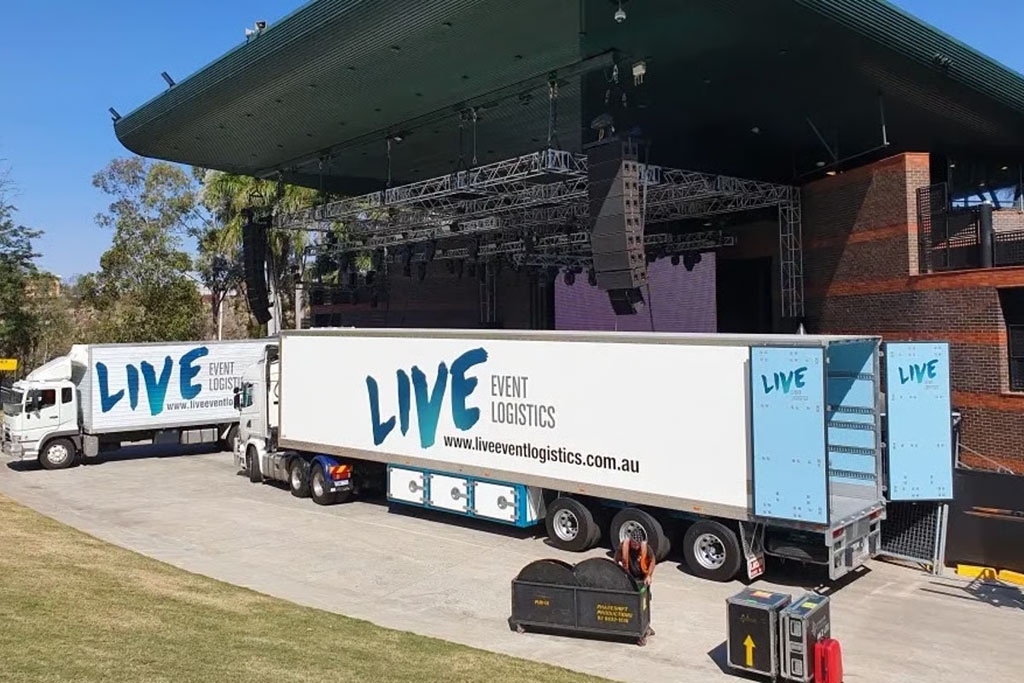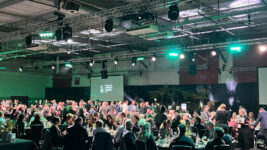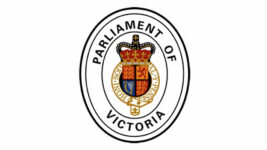NEWS
11 Aug 2025
ROAD TO RUIN: TOURING’S TRUCKING TURMOIL

Subscribe to CX E-News
Diesel and dollars smash HelloWorld
The music touring business runs similarly to the military. Hardened equipment, people and schedules operate often shrouded in secrecy with non-disclosure agreements. Usually with a rigid command structure and a lot of shouting, along with plenty of (staged) explosions, fire and smoke.
Running it all around Australia are several specialist trucking firms which are very different to the regular ‘common carriers’ who truck cartons today, machines tomorrow, and sheep on Friday. Production equipment is irregular in size, shape, and handling; show bumps run in very specific order and schedules can be as tight as just an hour of leeway between cities.
Way back in time, Show Freight was created in 1979 when tours outgrew rigid trucks and needed semi-trailers. The firm grew, adding a travel division and eventually spawned specialist units like Show Film. For a Mad Max shoot, logistics over eight years included coordinating travel and freight from Broken Hill, Australia, to Namibia. This included chartering ships and handling over 5,000 freight movements.
Under the direction of Graham Fear, it expanded and ended up owned within Ansett Airlines from 1989. It became the largest operator with its iconic clown logo on as many as 80 trucks, until Ansett collapsed in 2000.
Owing significant money to Avis Rent a Car, the liquidator accepted a proposal to swap the debt, and Avis assumed control of Show Group.
In the meantime Australian Touring Services was created in the late 1980s by Phil Duncan, Terry Turner (RIP) and Chris Nicholson, going on to adopt the trading name ATS Logistics. The two trucking firms competed vigorously, maintaining reasonable margins and always expanding.
Avis tolerated occasional bad debts for a while, until the disastrous Soundwave collapse where Show Group ate almost a million dollar loss. The writing had been on the wall: ATS had refused the gig without an upfront, which mercurial promoter A.J. Maddah refused.
Fast losing appetite, Avis found a buyer in Andrew Burnes, the CEO and major shareholder of HelloWorld Travel, formerly known as Harvey Norman Travel. He described Avis as a ‘willing vendor’, yet it is rumoured he spent $150m buying the Show Group business.
“He wanted laminates, to hang around backstage and meet Lady Gaga or God knows whom. It’s the last place you want to be as a trucker,” an insider told CX.
Burnes didn’t like the pressure on margins that the competition, ATS, forced so he negotiated to buy that business as well, figuring he could jack up prices 30% having a virtual monopoly.
Then came Covid, and most fleets were parked, plates removed and trucks deregistered, parked on farm fields outside Sydney. Show Freight then relied on using 20 trailers still registered – and owned by long time national freight manager John Kline. A “silly dispute” arose, and Kline left with his 20 trailers, forming John Kline AAA Touring.
It was a bad decision by Burnes. Kline had – and has – the most immaculate black book in the business and immediately became the preferred supplier of some major US controlled promoters. Today his company has 60 trailers on the road with more coming. The effect on HelloWorld’s concert trucking business was immediate, and today obvious.
By then the HelloWorld truck business had 140 trailers, most unregistered and needing maintenance. A massive and expensive effort was required to get them out of paddocks and back on the road as lockdowns washed off and touring demand stepped up.
The business had an expensive rebrand as Event Logistix.
Which is where the perfect storm blew in.
The business had lost everyone with industry knowledge – and ask anyone: the touring industry is all about relationships and fast decisions. Early problems were obvious: the business relies on subcontractors with prime movers to pull company trailers. In the heat of a big job, like a Metallica tour, you need to round up as many as 80. And be at the venues to ‘see’ who is where, and not, and be ahead of problems 24/7.
Not just ‘being there’, but also knowing how the production departments work. Rigging in first, lighting second, sometimes backline early if the stage is a roller. Sometimes video before audio, or other way around. Oh, some backline was late loaded – which truck? Two drivers diverted to avoid floods, where are they?
Some trailers don’t have GPS trackers. Which ones? Swap some around, did the placards get changed? Shit, my list of subbies is a mess. Calling mobile numbers and asking them what they are carrying. They don’t know. Driver can’t change a tyre at Wagga…..
Event Logistix was controlled by a public company with byzantine systems and compliance obligations, so any new ‘vendor’ (read: subcontractor) needed to be ‘on-boarded’, a process that takes at best days and usually a few weeks. “If you need a subbie at 2 am to pull a trailer to Melbourne, I can find one at 1 am,” an insider said. “But Entertainment Logistix had no chance.”
Aside from a conga line of inept corporate managers, usually on 300 grand packages, another of many problems was recruiting company drivers for the 20 odd prime movers on the fleet. Post Covid saw a dramatic shortage of skilled drivers, which resulted in a black comedy when ‘new’ drivers turned up unable to reverse a trailer into a dock. They were licensed but barely capable.
Tracking and monitoring subscriptions were cancelled. Staff went on stress leave; one had a complete breakdown and ended on suicide watch. Cut loose he needed a Support Act grant to feed his kids.
In the heat of bump in or out, a fumbling driver clogs the system. Several E.L. drivers would utilise a ‘lead driver’ to reverse their trailers.
It looked bad, it was bad, and it was slow. Entertainment Logistix weren’t alone with the problem, but its newly branded fleet stood out. “I want the old clowns, not these new ones,” was a joke we heard more than once.
Then the bread and butter stuff fell over. Customers couldn’t get a quote, and when they did, they found rates had jacked up dramatically. Calls went unanswered. A cross-town drop of a few cases that previously cost $500 was suddenly north of $1,000.
In this environment competition flowered, aside from AAA Touring, Live Event Logistics, founded by former ATS employee Chris Woods, expanded to 50 trailers as fast as they could buy them. ‘Dry freight’ trailers suitable for music touring are less available on the market than common Tautliners and refrigerated trailers.
AAA and L.E.L. were buying any trailer that came along, fitting loading ramps, pan lights and extra tiedowns. Some have belly bins, useful for carrying merch or backline.
Early innovations at Show Group and ATS had gone out the window. ATS had accreditation and equipment to ‘road train’ trailers from Perth to the east, saving many thousands on a cross country four day run that easily costs 10 grand for one truck. Kline at ShowGroup could arrange ‘run hot’, putting two drivers into a truck for non-stop two day (legal) runs between Adelaide and Perth.
The operators all spent big complying with increasingly strict National Heavy Vehicle Regulator (NHVR) laws, particularly fatigue risk management systems. ATS installed a driver monitoring system that sounds an alarm if the driver starts to nod off. Drivers objected to being monitored – until they started to see lives saved.
And the human interface needed and needs to be managed. A driver with an ‘awesome’ reputation can lose it fast – one tour the writer ran last decade featured a B double (twin trailer) driver who managed to drop a trailer somewhere it became ‘parked in’, and then turned up an hour late and drunk for the next bump out. He was fired on the spot by the operator, who found a replacement within 90 minutes.
The operators know how to do ‘recovery’ when a turbo blows or a rig breaks down. Professional drivers can and do change tyres on the road. They will spend time strapping and securing their loads, and know what is loaded where – to avoid out of balance or overweight fines.
With nothing going the right way, HelloWorld did what corporates do; they looked around to offload the problem. Chris Woods at Live Event Logistics had the call, with an offer he couldn’t refuse. What it contained isn’t known, which in and of itself is a possible problem for HelloWorld, which as a public company must report ‘material changes’ to operations.
Given HelloWorld’s share price is now scraping $1.50, from an all-time high of $18 last decade, it would seem the sale of Entertainment Logistix is worth less than the reporting threshold of 20% of turnover and/or profit.
Which puts it a very, very long way down from the rumoured $150m it paid for ShowGroup nine years ago. Not to mention the tens of millions for ATS and the rebranding and new fleet of Entertainment Logistix trucks.
It’s a lot of money for some dubious backstage prestige.
HelloWorld were approached for comment but didn’t reply by deadline.
Live Event Logistics Expansion
Live Event Logistics has just completed the largest fleet and infrastructure expansion in Australian entertainment logistics history, with the acquisition of 90 touring trailers and rigids. The fleet now exceeds 120 dedicated concert trailers, supported by an expanded national team of professional, touring-experienced drivers and operational crew.
They have designed a system that connects international freight, customs clearance, air/ sea cargo, indoor cross-load, warehousing, and dedicated show trucking, all in-house and coordinated from one team.
Their new Sydney facilities now offer 24/7 access with undercover cross-load zones, flat, short-push storage solutions for arena and stadium-scale shows, and short and long-term storage options for tours, festivals, and theatre.
LEL also have a Brisbane HUB with 1000m2 warehouse, 4,500m² of container and trailer storage and dedicated theatre storage zones.
Later this year, a new Los Angeles office opens offering clients a seamless end-to-end experience between Australia and the United States. From carnets to cross-loads, the team will manage every step, ensuring 24/7 communication, complete visibility, and trusted execution across continents.

Chris Woods, CEO & Founder, Live Event Logistics comments:
“This is a defining moment for us. We’ve gone all in – securing the infrastructure, the gear, and the team to lead the next era of global touring and film logistics, at a scale that’s never existed in Australia.”
Subscribe
Published monthly since 1991, our famous AV industry magazine is free for download or pay for print. Subscribers also receive CX News, our free weekly email with the latest industry news and jobs.






